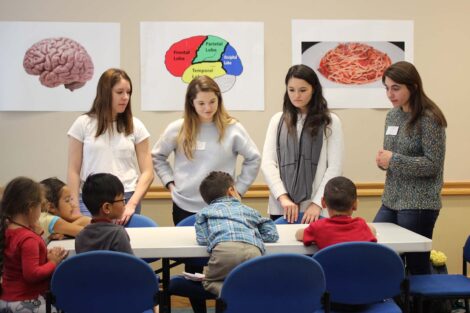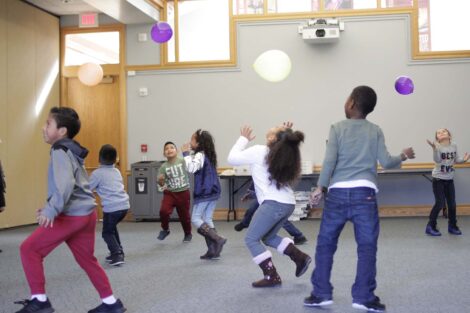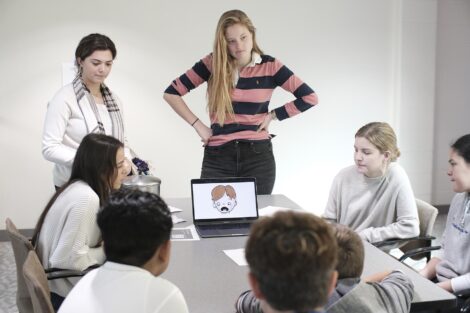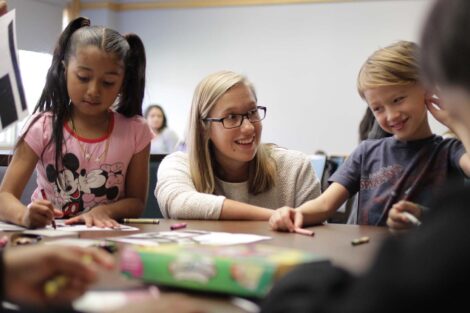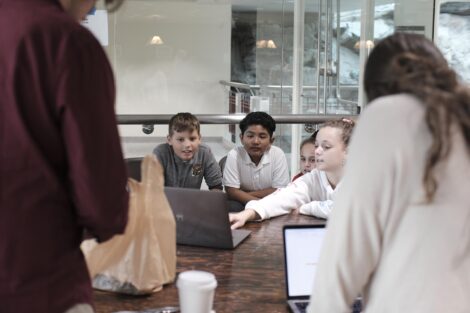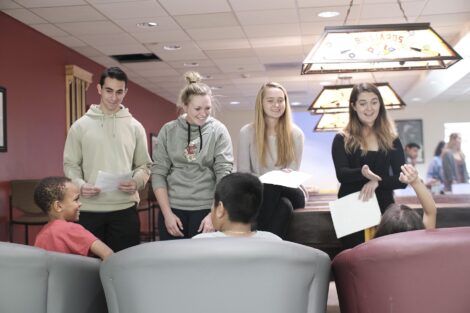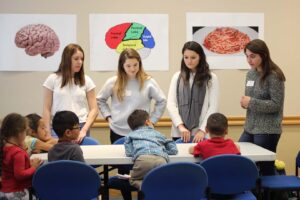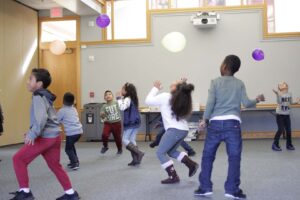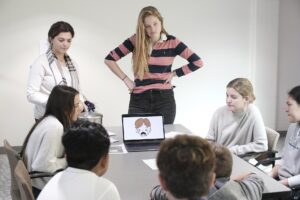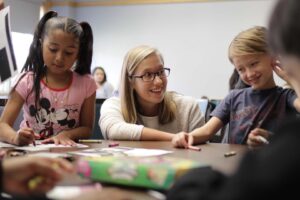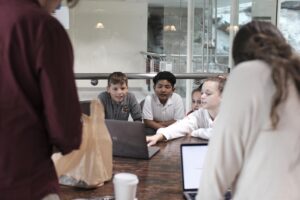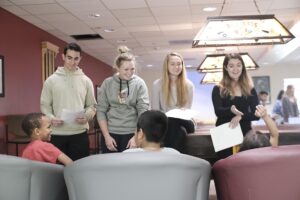Landis Center selects Prof. Lauren Myers for engagement scholarship
Editor’s note: Photographs were taken prior to mask-wearing and social-distancing protocols.
By Stephen Wilson
For years you’d see the tiny green tent pop-up at the Easton Farmers’ Market, swarming with kids as they colored, shaped Play-Doh, blew bubbles, and played with balloons. That same tent would appear at other farmers’ markets and area attractions like SteelStacks and Banana Factory as Lauren Myers recruited kids from diverse backgrounds across the Lehigh Valley.
While the kids enjoyed the fun, Myers and a team of students from Lafayette Kids Lab chatted with parents, gauging their interest in participating in a research project on campus.
The associate professor of psychology needed toddlers and their families to participate in research in order to support her scholarship on a child’s ability to learn via video chat … which has become incredibly relevant to our lives during the age of COVID.
It makes sense that Myers, a developmental psychologist, would be named the inaugural Faculty Fellow for Engaged Scholarship by the Landis Center for Community Engagement.

Lauren Myers
The role has her pursuing a community-based project in partnership with Ms. Toni Ann Falcone and Ms. Tanya Vasquez at Cheston Elementary School. Landis Center engages with students in community-based projects, helps faculty integrate community-engagement outcomes into their curriculum, and builds positive collaborations with the local community organizations, such as Easton Area School District.
“As we considered the Center’s mission, Prof. Myers felt like the perfect fit,” says Art Kney, professor of civil engineering and director of Landis Center for Community Engagement. “She brings her classroom to life through active citizenship, integrates her scholarship into classroom activities, and helps students learn about civic leadership and social advocacy.”
All were on display in her recent remote Lifespan Development course as students met virtually with Astrid Pena and Jeanine Stanilous, community school coordinators from Cheston and Paxinosa Elementary schools.
Community schools provide resources for students who face barriers to success. The schools become a hub of services that include on-site medical and dental care, food banks, clothing closets, and housing resources. These services can help prevent issues that distract children from learning. These supports from community schools are especially important as COVID-19 threatens to further widen educational inequality in the United States.
As part of their module on development during middle childhood, Myers’ students also zoomed into remote elementary classes with Falcone and Vasquez’s students at Cheston Elementary. Both teachers have worked with Myers and her classes before the pandemic.
“Even though we cannot visit the Cheston kids or have them come to campus this semester, during our current remote learning environment it is even more important to provide opportunities to connect to real-world issues in child development,” says Myers.
This has been a common approach in her teaching and her work with Landis. In the past through the Connected Classrooms program, Myers and other faculty worked with area public school teachers at Cheston and Paxinosa Elementary schools to learn about child development from the children, supplement the children’s lessons, and give Lafayette students an opportunity to turn their learning into lessons about friendship, conflict resolution, the brain, and more.
Her work has been recognized both by Landis and the College as she has earned several awards: Excellence in Community Engagement Pedagogy and the Hoff Award for Superior Teaching.

